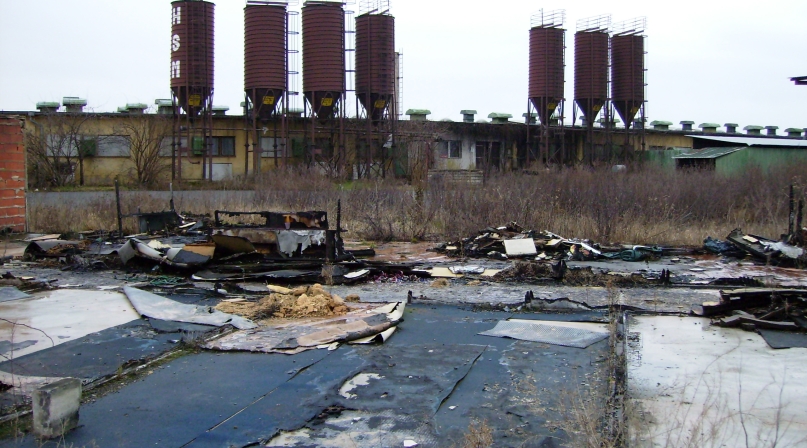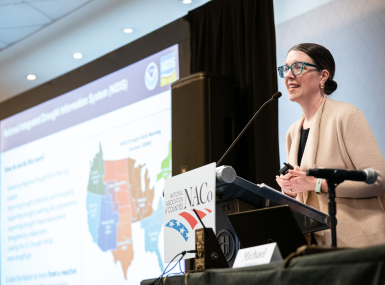Senate moves brownfields bill; path remains unclear in House
Upcoming Events
Related News

BUILD Act authorizes EPA’s Brownfields program through 2018
The Senate has approved a bipartisan Brownfields Utilization, Investment, and Local Development Act of 2015 (BUILD Act, S. 1479) by unanimous consent. The measure passed on June 27 reauthorizes a popular EPA program that helps communities revitalize underused and contaminated land. The measure would authorize EPA’s Brownfields program through 2018.
Originally passed in 2002 as a provision the Small Business Liability Relief and Brownfields Revitalization Act (P.L. 107-118), EPA’s brownfields program provides technical assistance and grants for communities to reclaim previously owned industrial sites that have fallen into disuse.
Through the program, there have been over 24,000 brownfields assessments and 1,200 brownfields cleanups nationally, which supporters said sparked economic development opportunities and created over 113,000 jobs. While the program’s authorization expired in 2006, Congress continued to fund it, and the program received $189 million in FY16. Key provisions in the BUILD Act
• Expanding the universe of eligible brownfields grant entities to include nonprofit organizations, limited liability corporations, limited partnerships or qualified community development entities. While this provision potentially broadens the types of entities that would qualify for funding, brownfields redevelopment projects are expensive and the grants only cover a small portion of the costs. As a result, local governments often partner with outside groups for brownfields redevelopment.
• Creating a multipurpose brownfields grant program that would allow eligible entitles to undertake multiple brownfield projects under the same grant.
• Allowing certain government entities, who are non-owners, to be eligible to receive grants, as long as the government entity did not cause or contribute to the pollution to the site. Under current law, if a local government does not own the brownfields site, they cannot apply for grant funding.
• Increasing funding for brownfields cleanup grants from $200,000 to $500,000 per site and authorizing additional funding for multipurpose grants up to $950,000. These increases will provide greater certainty for long-term project financing.
• Allowing additional administrative costs to be charged back to the grant. Grant recipients can use up to 8 percent of their brownfields grant for administrative costs.
• Giving small community technical assistance grants to eligible entities in communities with populations under 15,000 and/or in disadvantaged areas where the annual median household income is less than 80 percent of the state-wide annual medium income.
• Providing grants to waterfront brownfield sites that are located next to a body of water or federally designated flood plains.
• Offering grants for renewable energy projects on brownfield sites. This includes facilities that generate wind, solar or geothermal energy or any energy efficiency improvement projects on brownfields.
The measure now heads to the House for consideration where a similar bill, the Brownfields Reauthorization Act of 2016 (H.R. 4463), awaits committee action. However, both the House Transportation and Infrastructure, and the Energy and Commerce committees have indicated they are working on a separate free-standing, yet-to-be-introduced brownfields bill.
NACo supports continued funding for redevelopment of abandoned or under-utilized brownfield sites and believes the federal government should provide incentives for counties to identify and remediate contaminated properties.
Attachments
Related News

NOAA outlines help for counties navigating drought’s growing risks
In April, the National Integrated Drought Information System will launch the Mid-Atlantic Drought Early Warning System, which will help county officials allocate resources and attention to mitigate drought-related disasters.

House Agriculture Committee introduces 2026 Farm Bill
On February 13, House Agriculture Committee Chairman G.T. Thompson (R-Pa.-15) introduced the House version of the 2026 Farm Bill, the Farm, Food, and National Security Act of 2026.

Congress increases oversight of Gulf Coast Restoration Trust Fund
On February 3, Congress passed new funding and authority for an audit and expanded oversight of the Gulf Coast Restoration Trust Fund, which houses federal funds for recovery from the Deepwater Horizon oil spill disaster. The provision was included in the Financial Services-General Government appropriations bill (FSGG), which was one of five included in a minibus package passed by Congress (P.L. 119-75).